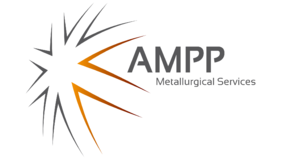MAA Technology Manager, Chris Weir, shares his insights from the Aerospace UP conference
What solutions are on the horizon to significantly reduce aerospace and aviation emissions? Aerospace companies, experts, academics and policy makers came together at the Advanced Manufacturing Training Centre in Coventry recently to explore the crucial role the Midlands can play in enabling aviation to achieve its ambition of reaching Jet Zero by 2050.
With environmental sustainability becoming an urgent focus, the fully-booked Jet Zero Midlands Conference not only explored this critical ambition but also how companies along the whole supply chain can contribute by reducing their carbon emissions with the aim of reaching net zero in their operations.
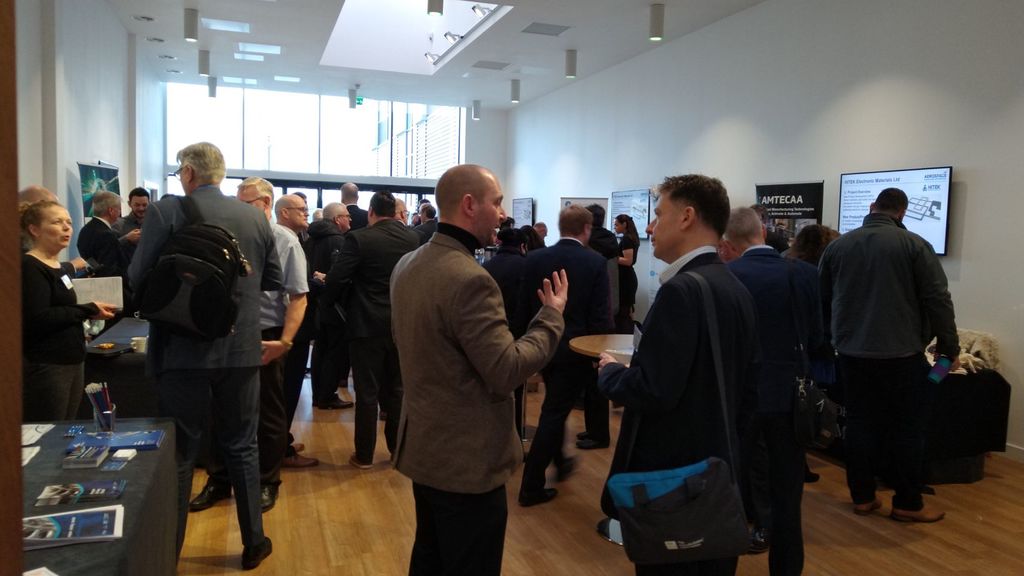
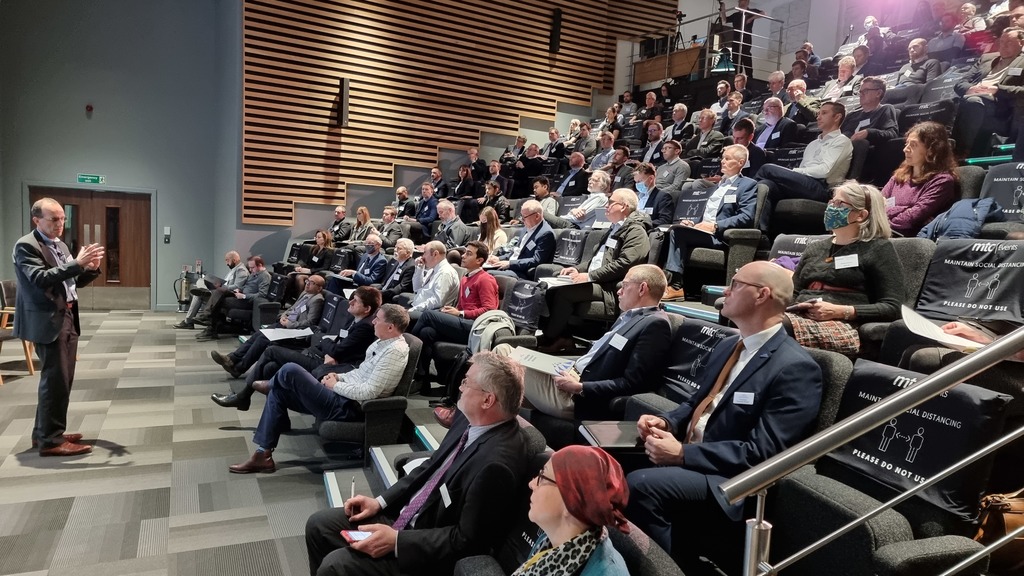
Achieving the Jet Zero 2050 ambition
Just as early aviators were first to observe the globe from above and gain a new perspective on civilisation, the conference began by exploring a new, more sustainable world.
We know that innovative Jet Zero aircraft are on the horizon but what is the best way to get there? This was the question we put to speakers and panellists in the morning and a diverse range of potential aircraft technologies and power sources were set out and discussed.
Electric technologies seem to be working well for small air vehicles. Midlands companies and researh bodies are developing advanced capabilities and a wide range of technologies. Dependent upon payload, current pure-battery solutions are limited to a range of under 200 miles, but hybrid-electric architectures could potentially extend this to regional flights within Europe, for instance. Such systems may include hydrogen fuel cells or gas turbines.
To achieve greater range or flight duration, hydrogen-powered gas turbines have been proposed. For this solution to be viable for aviation, hydrogen infrastructures and cost-effective production solutions would need to be established all around the world to enable global Jet Zero travel. This would need to happen in parallel with the development of aircraft technologies for handling, carrying and combusting hydrogen on wing.
Nigel Town, Industrial Supply Chain Architect for the Aerospace Technology Institute’s Fly Zero programme and Andy Geer, Chief Engineer – Ultrafan® from Rolls-Royce indicated that hydrogen solutions do not currently look like they will be scalable for long-haul aircraft. One proposal is to focus Jet Zero solutions around medium-haul aircraft which are likely to require travellers to become accustomed to an additional stop-over on longer routes.
Hybrid-electric and hydrogen solutions will require time to develop and mature. Therefore, in the near-term, aviation will need to rely on Sustainable Aviation Fuel (SAF). SAF is more expensive to produce than fossil fuels and it is likely that financial incentives will be required to increase production rates to enable a meaningful reduction in net emissions for aircraft.
We also heard from: Dr Hitenda Hirani, Chief Strategy Officer and Aerospace Programme Manager at the Institute for Aerospace Technology (IAT), University of Nottingham who highlighted the IAT’s electric technology research and test facilities; Paul Heathcote, Airbus A380 commercial pilot and Chairman of the IAT Advisory Group, who opened both the morning and afternoon sessions, sharing his insightful views on the opportunities and challenges along the road to low or zero emissions; and Mohammad Reza, Head of Operations at Samad Aerospace, who described the business opportunity and benefits for a range of eVTOL aircraft.
The Midlands is not only one of the largest aerospace clusters in the world but also home to a great mix of research facilities and innovative supply-chain companies – from a wide range of industrial sectors as well as aerospace – that make it the ideal region for developing technologies to accelerate SAF production and infrastructure as well as propulsion solutions for aircraft powered by electric batteries, fuel cells or hydrogen.
In the second session of the conference, we heard from just some of the region’s many providers of enabling technology for electric, hybrid-electric and hydrogen solutions: Richard Simkins, Head of Product Development at Intelligent Energy, gave an insight into the development of hydrogen fuel cells for aircraft applications, including an overview of the H2GEAR zero emissions aircraft demonstrator; Dr Michaela Kendall, CEO of Adelan and UK Mission Innovation Hydrogen Champion, highlighted the broad, multi-sector applications for fuel cell technology and informed us about the Midlands Hydrogen and Fuel Cell Network; Derek Jordanou-Bailey, Chief Engineer at Integral Powertrain, outlined his company’s Aerospace UP funded electric propulsion demonstrator programme and explained the rationale for the selection of the motor’s architecture; Leigh Purnell, CEO of Petalite, presented the company’s novel, high-reliability battery charging technology as applied to eVTOL aircraft.
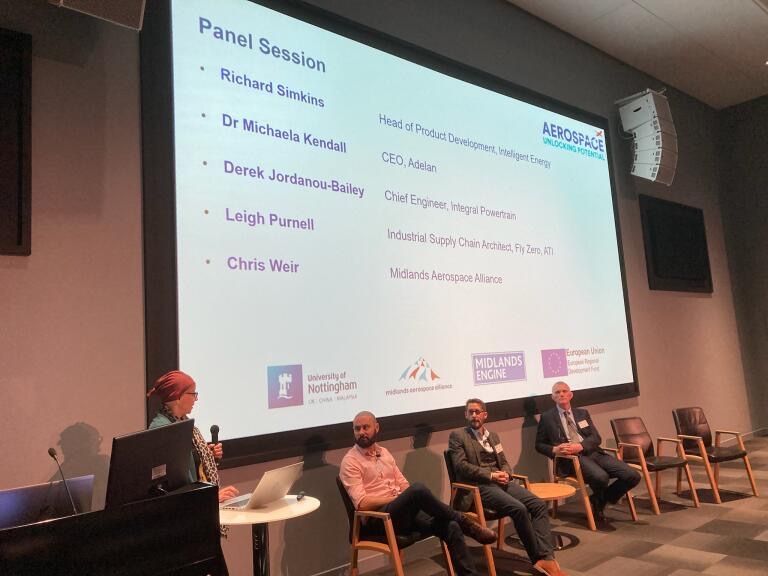
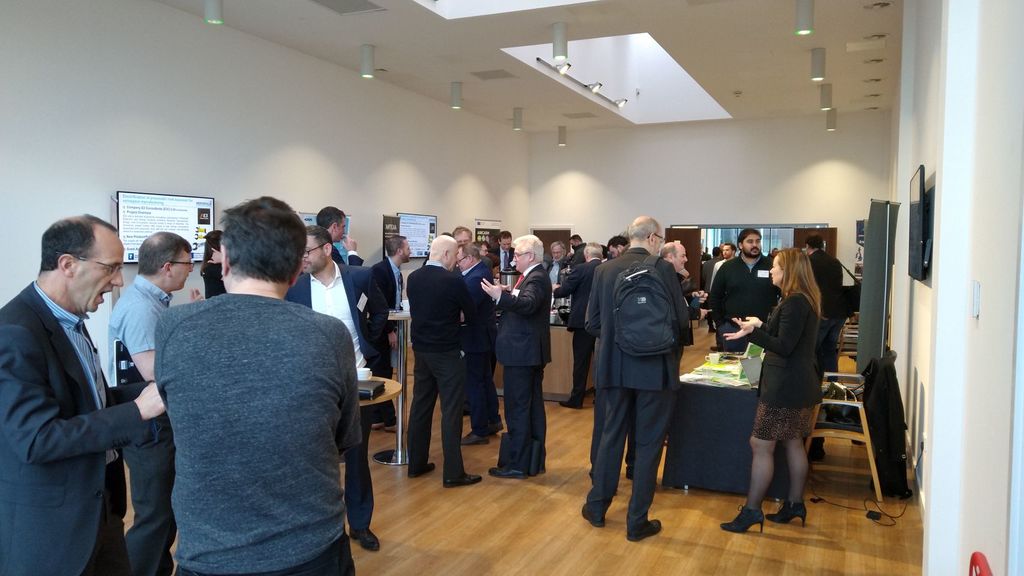
Developing a net zero aerospace supply chain
Greenhouse gas emissions will soon become a leading performance indicator for aerospace businesses alongside quality, cost and delivery measures. A poll during the conference revealed that around half of the companies attending were already measuring their emissions, with many more anticipated to begin this year.
Simon Richards, Chief Finance and Engineering Officer at Birmingham Airport, and Sandy Arbuthnott, Group Director – Sustainability at Meggitt, shared details of their well-established emissions reduction programmes, serving as inspiration to companies at earlier stages.
Measuring and reducing emissions are soon to move from being optional to being essential, with new legislation and possibly carbon taxes expected. However, positive action is not just an issue of compliance; it can create opportunities too.
Supply chain companies tell us they are already receiving enquiries from customers into their environmental sustainability. Eventually, emissions performance could be essential to being considered for the award of future work packages. Furthermore, there is a growing interest from investors in businesses with ‘green credentials’ that have strong sustainability performance with indices already in place that can help grade and enhance the valuation of companies.
Brigitte Amoruso, Senior Climate Change and Energy Specialist with Make UK, recommended a phased approach for companies at the start of their journey toward reducing emissions, beginning with measuring the emissions generated by the business and its electricity providers (known as Scope 1 and 2 emissions) and starting to identify opportunities and actions to reduce these.
In parallel, businesses should start evaluating downstream and upstream supply-chain emissions (Scope 3) which are generally the most significant source. Professor Sam Turner, Chief Technology Officer at the High Value Manufacturing Catapult, showed that raw materials and material processing typically represent 84% of total emissions over an aerospace component's life.
While Scope 3 is more challenging to assess within the aerospace sector, the International Aerospace Environmental Group (IAEG) is developing practical guidance. Within our region, this approach has the backing of industrial leaders such as Rolls-Royce and Meggitt, and the MAA plans to play a supporting role in assisting smaller companies implement emissions management systems and measures consistent with emerging industry norms, as described by MAA Technology Manager, Tim Holmes.
We also heard from: Roger Mendonça, Director of Delivery at the Midlands Engine, who referenced the body’s Ten Point Plan for Green Growth and recently-issued Hydrogen Technologies strategy; Dr. Zhong-Nan Wang, Lecturer in Aerospace Engineering at the University of Birmingham, who provided examples of how research in simulation techniques could replace or significantly reduce design iteration and complex testing, thereby reducing emissions; and Mike Small, Business Engagement Manager (AMCASH) also from the University of Birmingham, who described the funding and technical support available for sustainable materials.
The way forward
The Jet Zero Midlands Conference received enthusiastic feedback from delegates, particularly around the diversity of topics covered by experts over the course of the day. It was great to hear delegates continuing to discuss insights and ideas during the networking sessions in the busy display area, emphasising the strong motivation to achieve Jet Zero and net zero ambitions.
Although there are still many unknowns, leading to variations in forecasts and predictions as to the technologies that will be adopted longer-term, the conference provided an opportune platform to discuss and debate the way forward at this pivotal time for aerospace.
Best practice will evolve in time and the picture will become clearer. The MAA is committed to keeping the industry abreast of the latest developments and promoting collaboration to achieve our shared objectives.
Support is currently available for SMEs based in the Midlands to enhance environmental sustainability, particularly by reducing emissions, through the Aerospace UP programme. Find out more and apply to join the programme at aerospaceup.com.




